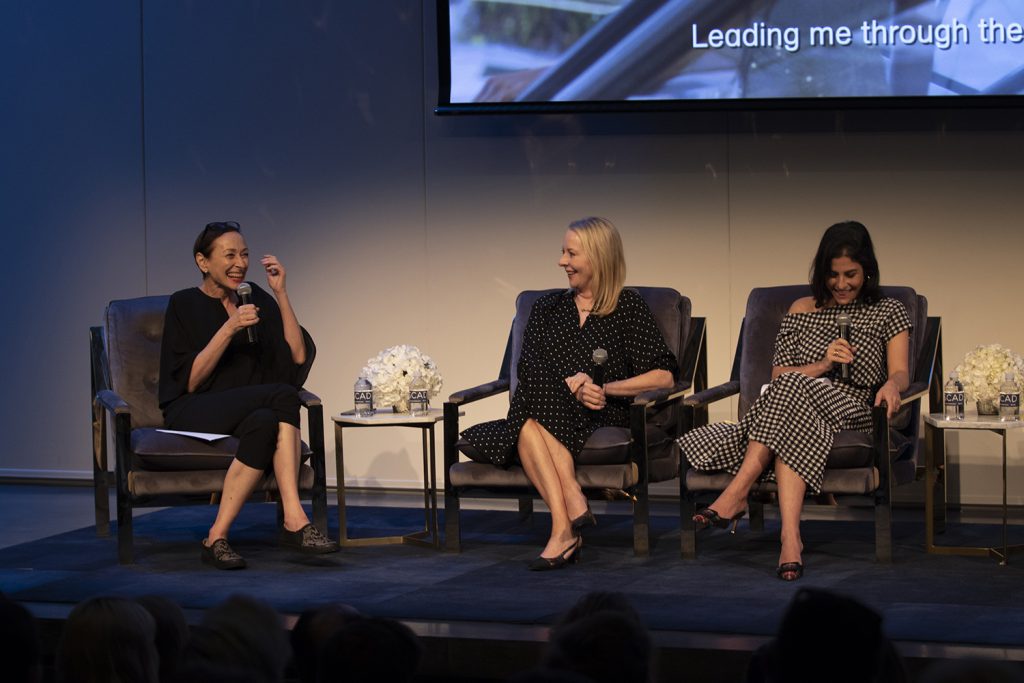The beauty business is booming, from a global scale down to the small community here at SCAD. Six industry professionals joined students during SCADstyle to discuss the current state of the industry, as well as the future direction in which it might be leaning. It’s no surprise to anyone with an interest in beauty that one of the top topics of the discussion was sustainability. Call it a trend, a buzzword or a new way of life, the topic of sustainability, and more specifically sustainability within beauty, has become one of the most popular subjects for debate. When the basic idea of sustainability is brought up, people think about not using plastic, having “organic products” and keeping to a cruelty-free way of life. But, within the beauty industry alone, it goes much deeper than that.
Sustainability within beauty calls to factors in the ingredients and their sourcing, the packaging— not only what type (paper, plastic, glass) but also what chemicals are used to treat the packaging— as well as production methods and distribution. RMS Beauty, founded by panelist Rose-Marie Swift, kick-started the sustainable beauty movement long before it was popular. Swift focused on creating products that only had clean, food-grade ingredients that were good for the skin, and packaged in the least environmentally-taxing way possible for the time period. At the time, sustainable beauty was considered a fringe idea, but today, it’s almost a requirement. All of the panelists agreed that the change in both mindset and products on the market are due to one main factor: the consumer and their desire for transparency.
Through the rise of this environmentally-conscious generation, consumers are now openly asking brands questions about their principles, practices and policies as well as demanding transparency in all aspects. Social media has facilitated these communications, especially for smaller brands that run under a direct-to-consumer structure. Social media has allowed mainstream consumers to contact brands, whether it be customer service or higher up authorities such as brand owners and engage in a conversation that would have previously been impossible.
The access to instant communication pushes brands to interact more with the everyday consumer on a larger scale, as well as receive feedback that speaks for the masses instead of a few select opinions. Panelist Nick Axelrod, founder of Nécessarie, said, “One comment represents more and more thoughts,” and the beauty brands, especially new ones, have to take every comment seriously. Communication has become imperative to a brand’s success.
Moving on to other ways that the new generation of consumers affect the beauty industry, the topic of representation reared its head multiple times. Again, through the use of social media, consumers have begun to challenge brands when there is a lack of representation or diversity. Alongside sustainability, representation has become one of the most important factors to beauty brands. Panelist Michael Marcano, Executive Marketing Director at Estée Lauder, spoke to the fact that large brands are working hard to make campaigns more “locally relevant” to the consumer which in turn makes the brand and its products seem more personal.
Panelist Linda Wells, founder of Flesh Beauty, was quick to state that “representation is not just a numbers game.” While, for some, it might be measured in the number of foundation shades offered or the range of nude lipsticks for sale, true and authentic representation is about showing a range of people, being themselves. It’s an ideology and action that panelist Georgie Greville, a founder of Milk Makeup, holds very closely to the core of her brand. Milk Makeup was the first brand in Sephora to show men and transgender people in their advertising campaigns without any societal filter in place, disrupting the industry norm.
Both topics, sustainability and representation, are massive challenges that the industry is tackling. Neither are easy to perfect nor do they have a rule book or guidelines to follow. Consumers and their opinions help shape the future of the industry, yet they sometimes expect flawless results overnight. Moderator Celia Ellenberg, Beauty Editor at Vogue, assured the students that “everyone wants to get better and better” but it does take time. The beauty industry is in a new era in which “companies are listening to consumers in a new way” and that communication will help push those brands, and the industry as a whole, into a revolutionary future.
Written by Hana Lorne
Photo by Lance Langel

